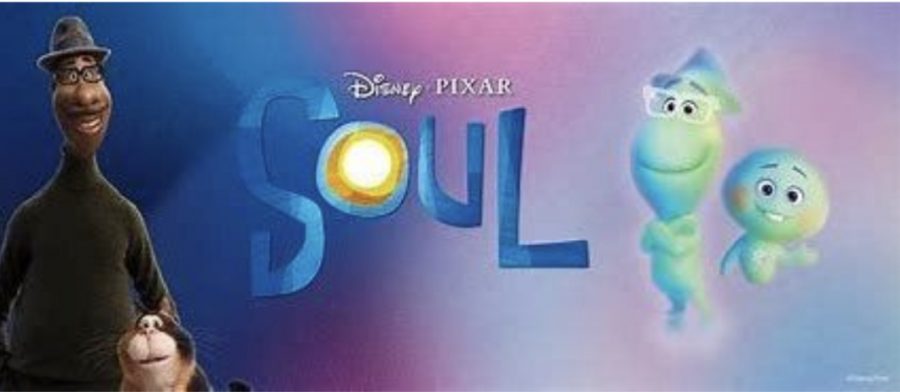Pixar’s “Soul” Fumes Viewers
February 22, 2021
It’s been over a decade since Disney has developed a major animated film including a black lead, and fans are both excited and scared for what’s to come. The Disney film ”Soul” has recently been getting a lot of attention but for all the wrong reasons. The film follows a Black middle-school music teacher named Joe Gardner (played by Jamie Foxx), who is on a magical quest to reunite his soul and his body as his dream of becoming a successful jazz musician takes off. At first Soul felt like a step in the right direction for Hollywood, as Black Lives Matter protests were prominent and had challenged many industries to recognize continuous diversity problems and change them. With that pressure producers decided that what people might need is a film that is uplifting, and that’s where Soul came into play, but the public’s responses to it were not all that enjoyable.
The criticism within reviews has really caught the eye of many people, and everyone is beginning to question where Disney stands when depicting black culture. In the film Joe Gardner runs into a delusional spirit named 22 (played by Tina Fey), who wants to embark on her reason for living. “In who’s right mind thought that it would be okay to cast a white woman as a black character and to speak above that she was recently pulled from the series “30 Rock” because she was caught doing blackface”, one Disney fan said. In regards to her acting, Fey’s casting really triggered a lot of emotional responses on the internet. Many believed that the role should have been given to a black actress. “I just feel like that what should have been a Africna American film was ruined because they put a white actress to voice a black character. It’s a whitewashed film because to them one black male represents diversity and that’s heartbreaking”, says a black rights activist. Even though this movie might seem to be the biggest slap to the black communities face, let’s not forget to mention this isn’t the only movie where diversity was taken as a joke. Other films such as Brother Bear, Spies in Disguise, The Emperor’s New Groove, and Princess and The Frog have all been brought up on occasion to the release of Soul.
The Emperor’s New Groove is set in Peru and we are introduced to a rather selfish Incan prince, Kuzco, who quickly transforms into a llama for most of the film. The same occurs in the film Brother Bear, except this time the leading character named Kenai transforms into a bear 16 minutes into the film and doesn’t return to normal up until the end of the movie. Matters finally got worse in 2009, when the studio introduced the world to its first Black Disney princess, Tiana, in The Princess and the Frog. After 30 minutes of giving us charm, grace, and a show-stopping musical number, the most outstanding Disney princess we’ve seen in years turns into a frog for most of the film. Although the hit animated feature, just like The Emperor’s New Groove and Brother Bear, would collect crucial praise and Oscar nominations, audiences were left in regards once again of the chance to see a full-fledged animated character of color on the big screen.
Even though representation matters, how much diverse characters depicted in films are far more important. Minorities not only deserve audio representation in animated cinema, but full screen time without having to be transformed into animals for the majority of the film. To see characters of color on the big screen is to humanize them just like everyone else. I want to see them cry, laugh, and emote with darker complexions. That shouldn’t be too much to ask for at this point. We live in a world where diversity is preached like a prize but only if you’re successful in surpassing all the bullshit that comes along with it.
The late Walt Disney once famously said that “animation offers a medium of storytelling and visual entertainment which can bring pleasure and information to people of all ages everywhere in the world.” As we head into the new year, I would only hope Hollywood finally recognizes that such a medium should include all minorities but most importantly black characters in their complete fullness with their souls and spirit.




